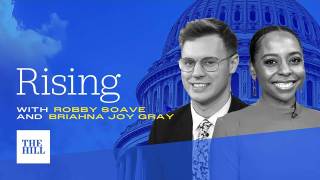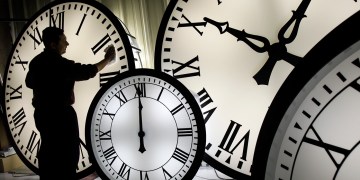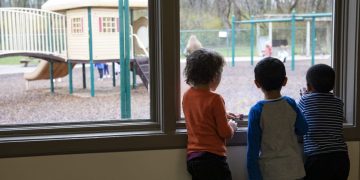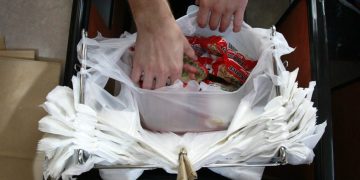Judges skeptical of Trump arguments for broad criminal immunity
A three-judge panel during a hearing Tuesday appeared broadly skeptical of former President Trump’s claims that he enjoys broad presidential immunity from prosecution on charges related to the 2020 presidential election.
Trump’s lawyers took a firm position, arguing former presidents such as Trump can only face prosecution if they are first impeached and then convicted by the Senate. They have asked the court to toss the case entirely.
But the three-judge panel appeared poised to reject those arguments, warning that Congress may not always choose to impeach a president for unlawful conduct, and that such a stance would prohibit prosecutors from later acting on new evidence of crimes if it went unweighted by the Senate.
Trump attended the hearing in person before the District of Columbia Circuit Court of Appeals, leaving the campaign trail less than a week before the Iowa caucuses to travel to the nation’s capital. Trump’s legal travails have helped him on the campaign trail, where he has a big lead on GOP rivals in Iowa and nationally.
At the courthouse, Trump spent the hour-plus argument largely staring ahead, making brief comments to his lawyers.
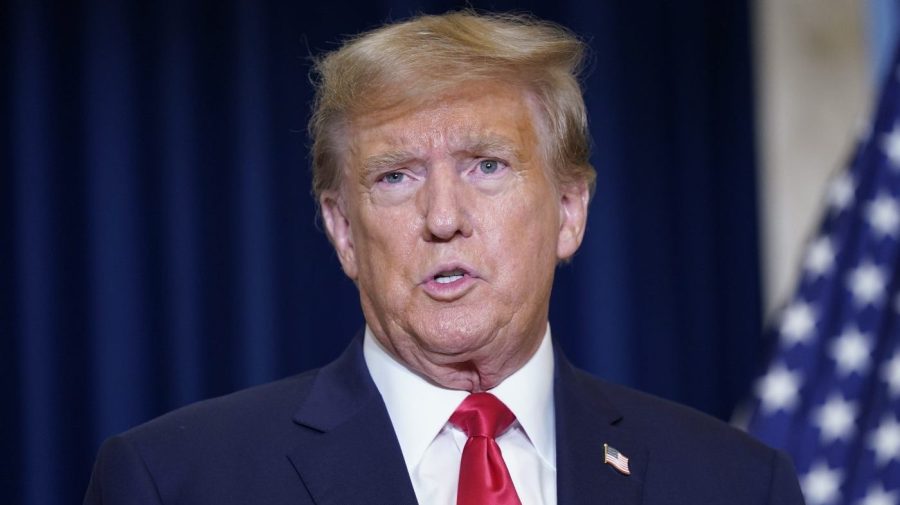
Former President Donald Trump speaks to the media at a Washington hotel, Tuesday, Jan. 9, 2024, after attending a hearing before the D.C. Circuit Court of Appeals at the federal courthouse in Washington. (AP Photo/Susan Walsh)
John Sauer, Trump’s attorney, was peppered by the judges with a number of hypotheticals about the extent a president would be shielded from prosecution if they were not impeached for the conduct, such as ordering SEAL Team Six to kill a political rival or selling presidential pardons.
Sauer said his answer was a “qualified yes.”
“He would have to be impeached and convicted” first, Sauer said, before prosecutors would be able to contemplate a case against a former president.
But the judges pushed back heavily on those arguments.
At one point, Judge Florence Pan, a President Biden appointee, noted that Trump’s legal team argued essentially the opposite case when he faced a second impeachment, in this case for his conduct related to the Jan. 6 attack on the Capitol.
“It seems many senators relied on that,” Pan said.
More Top Stories from The Hill
- Trump: Georgia case ‘totally compromised’ after allegations against Fani Willis
- Austin’s undisclosed surgery was for prostate cancer, Pentagon says
- Chip Roy on Johnson ouster: ‘That’s not the road I prefer’
- Haley looks to defy expectations in Iowa
Judge Michelle Childs, another Biden appointee, noted that a president could resign rather than face impeachment, something that under the framework of Trump’s attorneys would allow them to dodge future prosecution.
At one point, Sauer argued the threat of prosecution could have a chilling effect on future presidents’ decisions, saying they would need to look over their shoulder and ask, “Am I going to jail for this?” when making controversial decisions.
Judge Karen Henderson, an appointee of former President George H.W. Bush, said Trump’s argument gives executives too much leeway.
“I think it is paradoxical to say that his constitutional duty to take care that the laws be faithfully executed allows him to violate criminal laws,” she said.
James Pearce, who led the arguments for special counsel Jack Smith’s team, joined the judges in echoing those arguments.
“What kind of world are we living in … if a president orders his SEAL team to murder a political rival and then resigns or is not impeached — that is not a crime? I think that is an extraordinarily frightening future that should weigh heavily on the court’s decision,” Pearce said.
That is “wrong for textural and structural reasons and a host of practical ones,” Pearce said.
Sauer mocked that response when he returned to argue before the judges, saying “that’s not a frightening future — that’s our republic” in insisting the framers contemplated such a system to prevent political prosecutions.
Trump’s immunity argument — even if it ultimately fails — threatens to delay his trial, currently scheduled for March 4. It is the first of his four criminal cases.
Tuesday’s hearing comes after the Supreme Court declined a petition from Smith to leapfrog the appeals court and immediately weigh Trump’s immunity arguments, a gambit aimed at streamlining the process.
Both prosecutors and Trump agree the former president can appeal the issue before trial, and U.S. District Judge Tanya Chutkan — who is overseeing the case — has paused proceedings as Trump appealed her ruling rejecting the immunity claim.
But the appeals judges, particularly Childs, fiercely questioned whether the court does in fact have jurisdiction to move ahead.
Henderson also questioned Pearce over how the panel’s decision could prevent a torrent of legal matters brought against former presidents.
“How do we write an opinion that would stop the floodgates?” she asked.
Pearce argued that since Watergate, there has been “widespread societal recognition” that former presidents can be subject to criminal prosecution. The government’s investigation into Trump would not mean a “sea change of vindictive prosecution” is now imminent, he said.
Instead, the indictment reflects the “unprecedented nature” of the allegations against Trump, Pearce said.
During the argument, Trump at times whispered to his lawyers sitting alongside him at the counsel table, in particular commentating when prosecutors were arguing. Trump also passed notes to his attorneys.
Behind the counsel table sat Trump’s trial-level attorneys in the case: Todd Blanche, John Lauro, Emil Bove and Gregory Singer. Also inside the courtroom were Boris Epshteyn and Walt Nauta, Trump’s body man who is indicted alongside the former president in his classified documents case.
Smith sat on the other side of the courtroom in the first row, behind the prosecution table, but did not interact with Trump and only occasionally looked over in his direction. It marked the first time the two men were in the same room since Trump’s arraignment in August.
The three-judge panel similarly did not make much eye contact with Trump during the argument, although Sauer motioned to Trump at multiple points as he referenced his client.
Roughly 100 people were inside the courtroom, including court staff, media and more than a dozen members of the public. George Conway, a Trump critic who is divorcing former Trump aide Kellyanne Conway, sat in the back row, taking notes during the argument and at one point making a throat-slitting gesture as one of the judges pressed Trump’s attorney.
Chutkan was similarly skeptical of Trump’s immunity arguments when his team made them late last year, determining in December that while presidents do enjoy some immunity while in office, that does not extend to their life after leaving their post.
“Whatever immunities a sitting President may enjoy, the United States has only one Chief Executive at a time, and that position does not confer a lifelong ‘get-out-of-jail-free’ pass, Former Presidents enjoy no special conditions on their federal criminal liability,” Chutkan wrote in her 48-page ruling.
“Defendant’s four-year service as Commander in Chief did not bestow on him the divine right of kings to evade the criminal accountability that governs his fellow citizens,” she added in the decision.
Pearce cautioned the court against using a case where Trump has been accused of inspiring violence to prevent the transition of power, saying it’s “not the place to recognize some novel form of criminal immunity.”
“Never in our nation’s history, until this case, has a president claimed immunity extends beyond his time in office,” Pearce said.
Updated at 12:08 p.m. EST
regular post copyright

